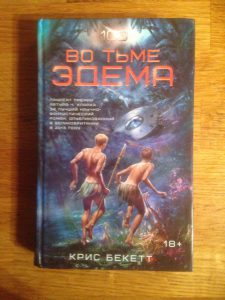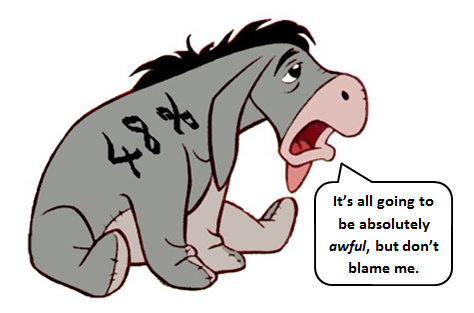I’ve been struck for some time by the increasing invisibility of working class people in Britain. Or perhaps it would be more accurate to say, I’ve been struck by the increasing invisibility of class as a social division. The concerns of progressive-minded people have shifted away from class to other divisions -gender, ethnicity, sexual orientation, ability/disability- to a degree that, as Owen Jones points out at the beginning of his important book, Chavs*, the kind of derogatory comment that would be completely unacceptable if applied to, say, an ethnic minority, or to women, or to people with disabilities, can now be quite openly made about people who are working class or poor. This was particularly evident to me in the wake of the Brexit referendum. I was very stuck, not only by the way that liberal middle-class Remain voters tended to characterise working-class Leave voters as ignorant, stupid, bigoted and racist, but also by their shock at being defeated. Many Remain voters, it seemed, only knew folk who voted Remain. There was a whole bloc of people out there, whose lives and opinions they knew almost nothing about.
When I was growing up in the 60s and 70s working class people were not invisible in the same way. The city I grew up in, Oxford, was at that time a major car-manufacturing town. Trade unions were powerful working-class organisations and, though I came from a middle-class and not particularly political background, in my teens I would have been able to name probably nine or ten trade union leaders in the same way that I could name senior government ministers. Changes since then have not abolished the working class, but fragmented it, disempowered it and rendered it invisible as a class to the point that some middle-class people, who clearly lead very sheltered lives, now speak of a classless society, or a post-class society, or of us ‘all being middle-class’ now.
The changes, described in Owen’s book, include, the dismantling of much of manufacturing industry, the attack, begun by Margaret Thatcher, on trade union power, and the deliberate policy of the Thatcher government, through the selling off of social housing, to encourage as many working class people as possible to begin to think of themselves as middle-class home owners, or at least to drive a wedge between them, and those that remained in social housing. The Labour Party, a party originally established with the precise purpose of ensuring that working class people were politically represented, was to carry on with this programme. Under New Labour, as Owen notes, the idea of emancipating the working class people morphed from improving conditions for the class as a whole, to helping individual working class people to become middle-class. The emphasis shifted from ‘equality’ to ‘equality of opportunity’. ‘The new Britain is a meritocracy’, Tony Blair said when he came to power, though the term ‘was not originally meant to describe a desirable society…[but] was meant to raise the alarm at what Britain could become’ (Chavs, p 96).
Not all working class people can become middle class. ‘If everyone became middle class, who would man the supermarket checkouts, empty the bins and answer the phones in call-in centres?’ (Chavs, p 250). And not everyone has the same aptitudes. But the shift of emphasis from improving the condition of a whole class, to helping people with the necessary abilities to leave that class and join the middle class, means that those who are left behind can be blamed for their own problems, and the poorest among them can be described in terms which, if applied to ethnic minorities rather than social classes, could have come straight from some 1930s Nazi tract:
‘…that sub (human) class that now exists in the murkiest, darkest corners of this country…good-for-nothing scroungers who have no morals, no compassion, no sense of responsibility and are incapable of feeling love or guilt’ (Carole Malone, News of the World, cited in Chavs, p 22)
One of the interesting points raised by Owen, and one which very much chimes with my own experience, is that denigration of working class people isn’t confined to the right-wing of British politics, but can also be found among liberal and even left-wing people. I read an article in the Guardian a few years ago, reporting on a poll which found that the middle class was now more ‘left-wing’ than the working class. And in the comment thread I came across the following, offered, as far as I could tell, without conscious irony:
… [The working class] consistently vote against their own interests. I have always imagined that the reason is that they think they are “middle-class” as was my own family’s delusion. However, I suspect that the real reason is that they are just hate-filled ignorant scum and we middle-class people should just say fuck them.
Hate-filled, ignorant scum. ‘One of the ways people have made their snobbery socially acceptable…’ says Johann Hari (cited in Chavs, p 116) ‘[is] by acting as though they are defending immigrants from the “ignorant” white working class’. Indeed some commentators quite specifically contrast hard-working immigrants with lazy good-for-nothing British workers. Writing in the Times in 1994, Janet Daley (cited in Chavs, p 118-9) characterised British working-class people as a ‘self-loathing, self-destructive tranche of the population’ and contrasted them with the ‘religion, cultural dignity and… sense of family’ brought by people from ethnic minorities, who were only held back by the ‘mindless hatred of the indigenous working classes, who loathe them precisely for their cultural integrity… I fear long after Britain has become a successful multi-racial society, it will be plagued by this diminishing…detritus of the Industrial Revolution’.
* * *
I heard a lot of that kind of talk from Remainers in the aftermath of Brexit. But it seems to me that describing working class British people as ‘hate-filled ignorant scum’ and contrasting them unfavourably with immigrant workers was never exactly calculated to endear them to the European project.
*References are to the new 2016 edition of this book, published by Verso

